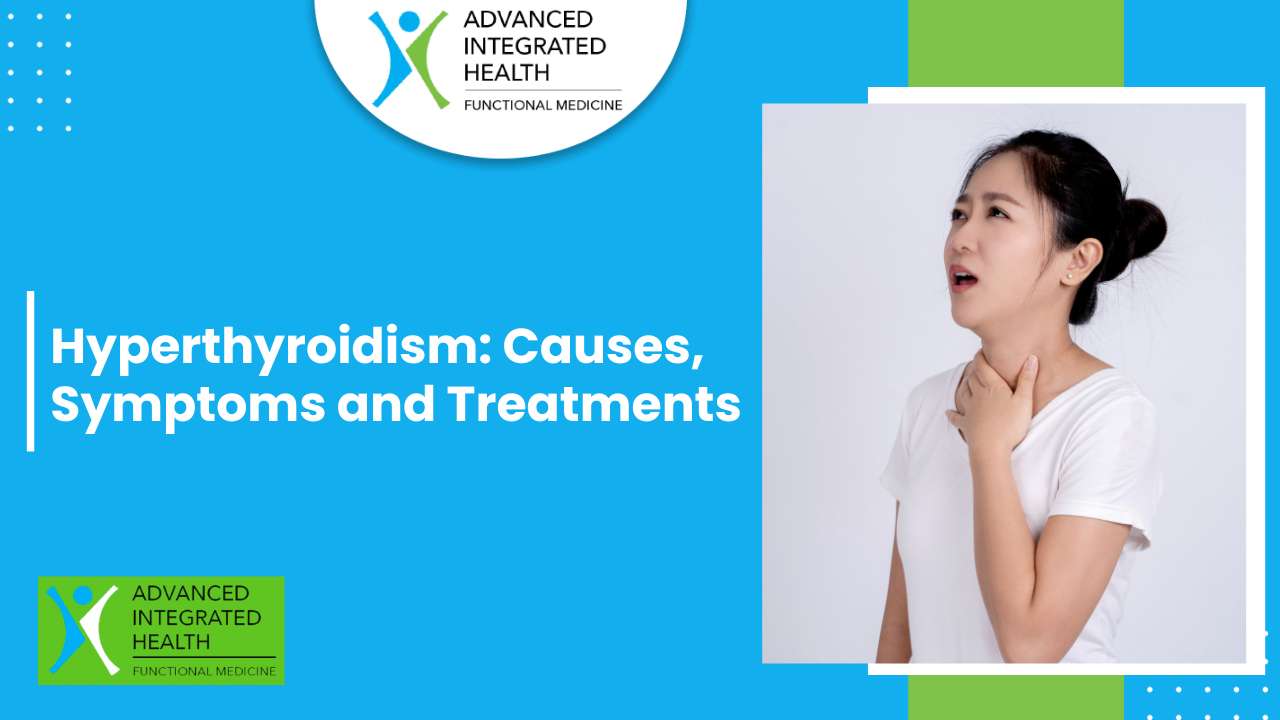Hyperthyroidism, a condition characterized by an overactive thyroid gland, significantly impacts the body’s metabolism and overall health. This article delves into the intricacies of hyperthyroidism and empowers individuals to recognize the symptoms and seek appropriate treatment. The management of hyperthyroidism is a journey, but with the right approach, individuals can lead a healthy and balanced life.
What Is Hyperthyroidism?
Hyperthyroidism occurs when the thyroid gland, located at the front of the neck, produces an excess of thyroid hormones. These hormones, thyroxine (T4) and triiodothyronine (T3) play a vital role in regulating the body’s metabolism, influencing various bodily functions such as heart rate, temperature, and energy levels.
The Causes of Hyperthyroidism
The development of hyperthyroidism can be attributed to several factors:
Graves’ Disease
The most common cause of hyperthyroidism, Grave’s Disease, is an autoimmune disorder. The immune system erroneously attacks the thyroid gland, resulting in the overproduction of thyroid hormones.
Thyroid Nodules
These are lumps or growths in the thyroid gland. When these nodules become overactive, they can produce too much thyroid hormone.
Thyroiditis
Inflammation of the thyroid, which can be due to various causes, including viral infections or post-pregnancy complications, can lead to excess hormone release.
Excessive Lodine Intake
The thyroid uses iodine to produce hormones. An overabundance of iodine, which can come from certain medications or dietary sources, can trigger hyperthyroidism.
Symptoms of Hyperthyroidism
Recognizing the symptoms of hyperthyroidism is crucial for early diagnosis and treatment. Common symptoms include:
- Rapid heartbeat or palpitations
- Unexplained weight loss
- Increased appetite
- Nervousness, anxiety, or irritability
- Tremors in hands and fingers
- Sweating or heat intolerance
- Changes in menstrual patterns in women
- Frequent bowel movements
- Enlarged thyroid gland (goiter)
- Fatigue and muscle weakness
- Sleeplessness
Diagnosing Hyperthyroidism
Diagnosis of hyperthyroidism typically involves a combination of medical history review, physical examination, and specific tests:
- Blood Tests: These tests measure the levels of thyroid hormones (T3 and T4) and thyroid-stimulating hormone (TSH) in the blood. Low TSH and high thyroid hormone levels often indicate hyperthyroidism.
- Radioactive Iodine Uptake Test: This test assesses thyroid function by measuring how much radioactive iodine the thyroid gland absorbs from the blood.
- Thyroid Scan: A thyroid scan uses a radioactive isotope to create an image of the thyroid gland, helping to identify the nature of thyroid irregularities.
Treatment Options for Hyperthyroidism
The treatment of hyperthyroidism aims to reduce the production of thyroid hormones and alleviate symptoms. Treatment options include:
- Anti-thyroid Medications: Drugs such as methimazole and propylthiouracil help reduce thyroid hormone production.
- Beta-Blockers: While not affecting thyroid hormone levels, beta-blockers can reduce symptoms like rapid heartbeat and tremors.
- Radioactive Iodine Therapy: This treatment involves consuming a radioactive iodine capsule or liquid, destroying overactive thyroid cells and reducing hormone levels.
- Surgery: Thyroidectomy, the surgical removal of all or part of the thyroid gland, is an option for patients who cannot undergo other treatments.
- Lifestyle and Dietary Changes: Managing stress, avoiding foods high in iodine, and maintaining a balanced diet can support overall treatment.
Living with Hyperthyroidism
Living with hyperthyroidism involves regular monitoring and adjustments in treatment as needed. Patients should maintain regular appointments with their healthcare provider to monitor their condition and treatment efficacy.
Conclusion
Hyperthyroidism, while a complex condition, can be effectively managed with appropriate medical intervention and lifestyle modifications. Understanding the causes, recognizing the symptoms, and seeking timely medical advice is key to controlling this condition and maintaining a healthy, active life.

Dr. Bob was born and raised in Florham Park, New Jersey.
He loved the philosophy of vitalism, which teaches about the incredible, innate intelligence of our bodies and its power to self-heal when given the opportunity.





